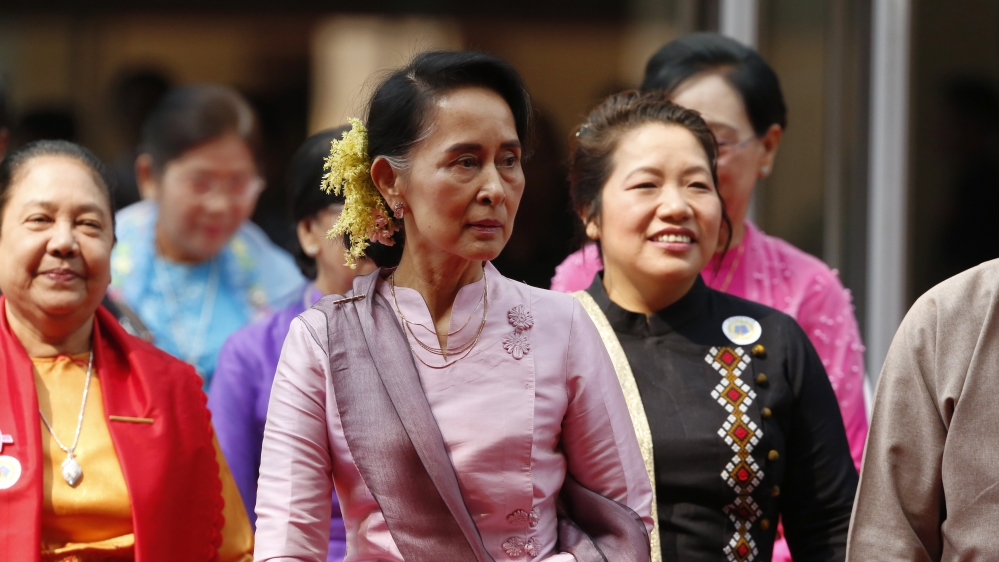
Aung San Suu Kyi, l’incongruenza di un simbolo
Aung San Suu Kyi è il Consigliere di Stato e Ministra degli Esteri della Birmania. E’ famosa in tutto il mondo come “the Lady”, titolo anche di un film che la ritrae come paladina della democrazia e dei diritti umani. Allo stesso modo deve averla vista anche la commissione che le ha assegnato un premio Nobel nel 1991, e non a torto. Aung San Suu Kyi ha vissuto prigioniera in casa sua per venti anni, combattente non violenta per la democrazia. Battaglia che ha vinto con le elezioni del 2013, anno in cui il partito National League of Democracy viene eletto a guidare il passaggio del Paese alla democrazia. Il suo governo negli ultimi 18 mesi ha lavorato ad un progetto di pace e di sviluppo sostenibile che ha però incontrato molte critiche.
Tra le ultime voci che si sono levate contro la premio Nobel, ci sono i suoi colleghi premio Nobel, Malala e Desmond Tutu, nonché una partecipatissima petizione per revocarle il premio. Il motivo di queste critiche sta nel fatto che una regione del Myanmar, il Rakhine, è oggi occupata militarmente, chiuso ad ogni accesso sia da parte di missioni umanitarie che di media, e la popolazione che abita la regione, musulmani Rohingya, sta emigrando in massa verso il Bangladesh (mezzo milione di persone nelle ultime quattro settimane).
Ora, la difficoltà di accesso alla regione rende di conseguenza difficile avere notizie certe su ciò che sta succedendo in Rakhine. Certe però, sono le testimonianze di chi è fuggito e di chi si sta rifugiando in Bangladesh. Sono notizie di persecuzioni, violenze, stupri e infanticidi commessi dall’esercito di Myanmar contro la popolazione musulmana Rohingya. L’ONU ha definito i recenti avvenimenti un esempio testuale di pulizia etnica. Di qui le accuse a Aung San Suu Kyi, leader di fatto di un paese sconvolto da una tragedia umanitaria, accuse mosse in relazione al suo status di premio Nobel per la Pace.
Un aspetto da considerare è il fatto che Aung San Suu Kyi è una figura decisamente secondaria quando si parla di sicurezza e difesa dello stato. Il passaggio alla democrazia non è ancora ultimato, e per essere eletta, la leader è dovuta giungere ad un compromesso con l’esercito, lasciandolo a capo di tre ministeri fondamentali del Myanmar: Difesa, Frontiere e Interno. È perciò presumibile che quando si parli di una persecuzione interna, mossa dall’esercito, Aung San Suu Ky
Desmond Tutu, nella sua dichiarazione sull’operato della Lady, ha parlato di incongruenza di un simbolo, della discrepanza tra ciò che Aung San Suu Kyi dovrebbe rappresentare in quanto premio Nobel per la Pace e la realtà della Birmania oggi. Aung San Suu Kyi ha certamente rappresentato l’elemento fondamentale del passaggio alla democrazia per il suo paese, passaggio che come lei stessa afferma non è ancora perfezionato e richiede tempo. Detto ciò il problema che va oggi affrontato non si esaurisce con una dichiarazione di una leader che non ha potere sull’esercito, o con il ritiro del suo premio. Il problema rimane in quel campo profughi in Cox Bazar di mezzo milione di persone, che non diminuiranno nel prossimo futuro, e nei villaggi che continuano a bruciare in Rakhine ma sono inaccessibili ad aiuti umanitari.
Richiamando le parole di Francesco Rocca, presidente della Croce Rossa Italiana, attualmente in missione in Cox Bazar, serve uno sforzo consistente da parte della comunità internazionale, aiuti concreti al campo profughi e una strategia di risoluzione della crisi in Rakhine, che affronti l’origine dell’emigrazione. Queste devono essere le direttrici dello sforzo internazionale, queste le priorità.
